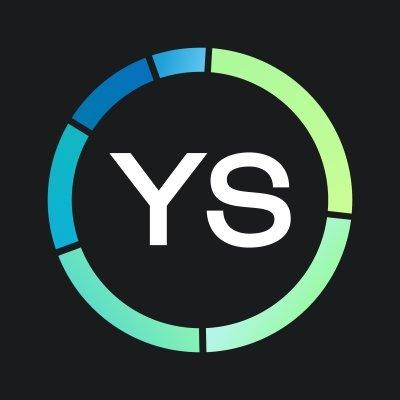Invest in private market alternatives
Invest in real estate loans
Investments
$10
Groundfloor enables individuals to begin investing in real estate with a minimal initial requirement of only $10.
Moderate Risk
3/5
Yieldstreet investments, focused on high-yield, specialty lending, carry inherent risks higher than traditional investments, primarily due to the potential for borrower default.
Moderate Risk
3/5
Investing on Groundfloor involves credit risk from borrower default, market risk due to real estate market fluctuations, liquidity risk as investments are tied up until loan maturity without a secondary market for early exit, regulatory risk from changes in laws affecting real estate and crowdfunding, and platform risk related to operational disruptions or cybersecurity threats.
Minimum Liquidity
1/5
Yieldstreet's investments are generally less liquid, meaning they cannot be quickly sold for cash. These private market alternatives often require longer holding periods.
Minimum Liquidity
1/5
On Groundfloor, liquidity is tied to the term of the real estate loans, which range from 6 to 18 months. Investors' funds are committed until the loan matures and the borrower repays.
Receive new reviews from Fintorial
Moderate Return
9.6 %
The expected net annualized return (IRR) for investors on Yieldstreet is 9.6%.
Moderate Return
10.72 %
Groundfloor's loans are graded from A to G, with interest rates ranging from 5.5% to 25.5% annually, based on risk. A diversified portfolio across all repaid loans to date would have earned a 10.72% annualized net return.
Short-term Investment
6+ months
Yieldstreet's investments span time horizons from as brief as 6 months to as long as 5 years.
Short-term Investment
6+ months
Groundfloor investments have loan terms ranging from 6 to 18 months.
Who can invest
United States
Yieldstreet is open to U.S. persons with a valid TIN, U.S. bank account, and U.S. mailing address. Non-accredited investors can access the Alternative Income Fund, while single asset investments require accredited investor status verification.
Who can invest
International
Groundfloor is accessible to investors both in the US and internationally. However, for non-US investors, a minimum transfer-in amount of $5,000 is required.
Moderate Volatility
3/5
Assets on Yieldstreet, being alternative investments, often show different volatility compared to traditional markets, potentially offering less correlation with broad market swings.
Moderate Volatility
3/5
The assets on Groundfloor, which are short-term real estate loans, generally exhibit lower volatility compared to stocks, as their value is more closely tied to specific real estate projects and less to daily market swings.
Regulation and audits
SEC Regulated
Yieldstreet is regulated and undergoes regular audits for compliance. Its partnership with Synapse Brokerage LLC, an SEC-registered broker-dealer and FINRA and SIPC member, ensures adherence to strict financial regulations.
Regulation and audits
SEC Regulated
Groundfloor offers securities under Regulation A of the Securities Act of 1933, allowing it to sell securities to residents in states where it's qualified or announced its intent under Regulation A's Tier 1 or Tier 2.
Insurance
Yes
Funds in the Yieldstreet Wallet are insured up to $250,000 by the FDIC, with deposits between $250,001 and $1 million spread across multiple FDIC-insured banks for extended coverage.
Insurance
No
Investments on Groundfloor are not insured by any government agency such as the FDIC or SIPC, nor are they guaranteed by Groundfloor. This means investors fully assume the risk of borrower default or project failure, without any insurance safety net.
Payouts
Dividends
Yieldstreet offers varied dividend or interest payment structures: fixed income investments provide monthly payments at a target yield, diversified portfolios offer quarterly target yields, and art investments yield returns upon sale, all subject to specific terms and potential annualized net returns.
Payouts
Interest
Groundfloor pays interest on funded loans. Interest accrues from the investment date until the loan is repaid. Loans may have monthly or deferred payment terms, with monthly interest payments processed once a month and lump sum repayments for deferred loans.
Withdrawals
Investors on Yieldstreet receive distributions directly into their Yieldstreet Wallet and can withdraw these funds to their bank account as desired.
Withdrawals
Investors on Groundfloor get their money back, including principal and accrued interest, once the borrower repays the loan, typically within 6 to 18 months. Repayments are processed within 7 days, with funds made available in the investor's dashboard for withdrawal or reinvestment.
Extra Fees
Yes
Yieldstreet's fees include a range from 0% to 2.5% annual management fees, structured notes incur a 1.25% annual management fee plus a $150 annual fund expense, the Yieldstreet Alternative Income Fund charges a 1.0% annual management fee and up to a 0.5% annual administrative expense.
Extra Fees
No
Investors on Groundfloor pay no fees. Instead, borrowers are charged an underwriting fee by Groundfloor, ranging from 2% to 4.5% of the loan's principal amount.
Taxes
Tax Form
Yieldstreet issues either a K-1 or 1099 form for tax purposes, based on the legal structure of the investment, with details provided on the offering page and in downloadable documents when new offerings are launched.
Taxes
Tax Form
Groundfloor provides tax support by issuing a 1099-INT form for interest income over $10, a 1099-B for principal losses, and a 1099-MISC for promotional credits over $600.

